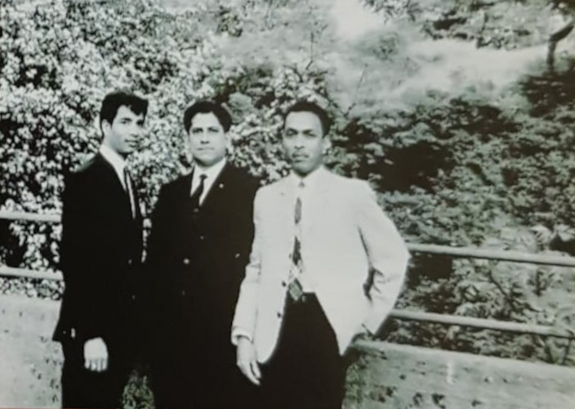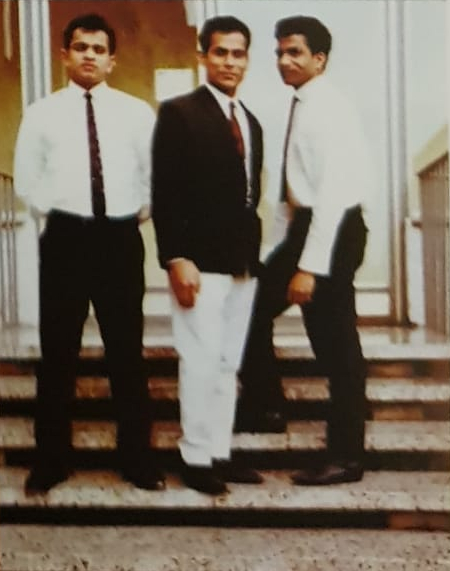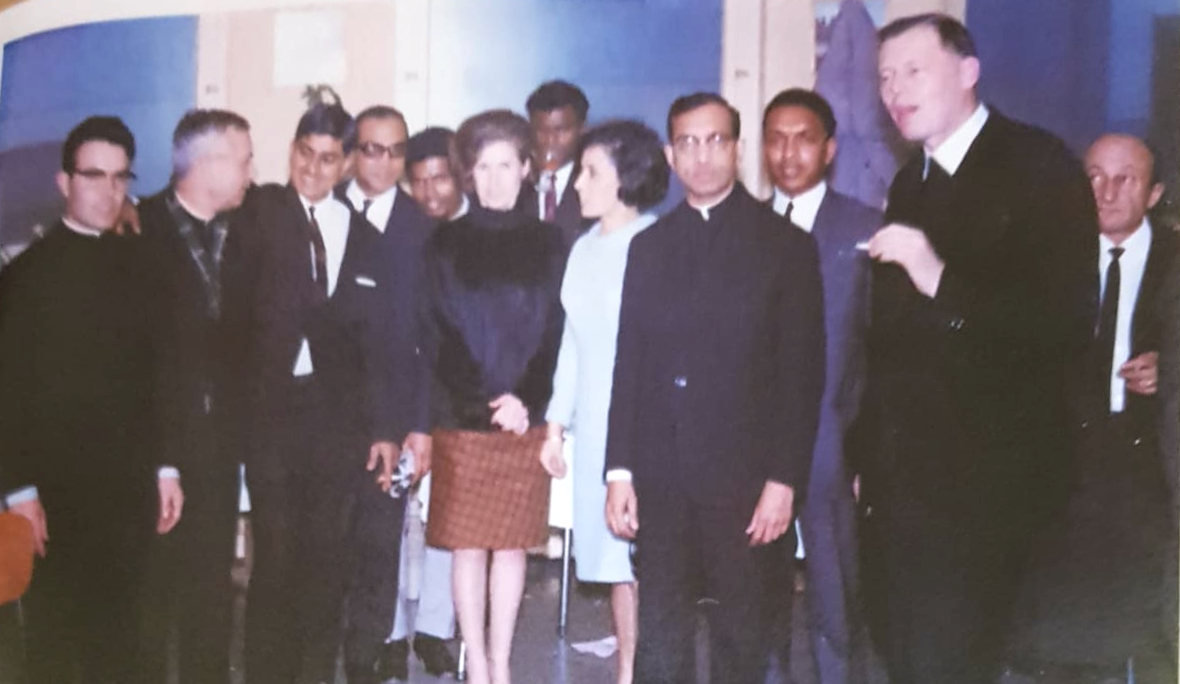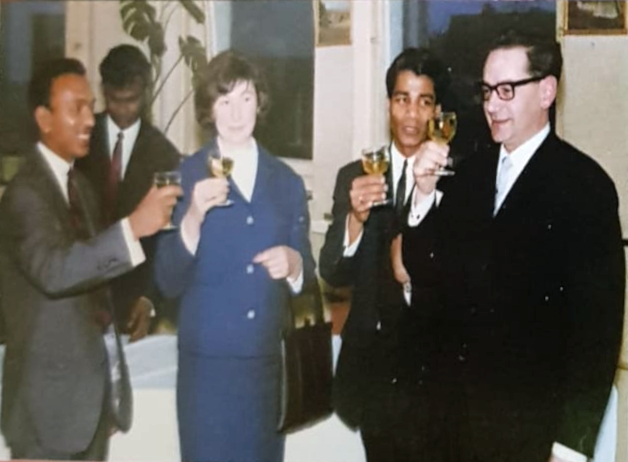
A group of Goans soon after their arrival in Ruesselsheim, Germany in early 1960. The town Opel car factory provided accommodation to the Goans.
As the post-WW2 German economy was growing at an accelerated rate, hundreds of thousands of workers recruited from Italy, Spain and Greece were insufficient to provide manpower for the manufacturing sector to meet the increasing worldwide demand for export products made in Germany.

A group of Goans at the entrance to a residential building provided by the Opel car factory in 1963. A number of Goans were employed at the Opel car factory in Germany.
At the beginning of 1963, Germany began expanding its search for more workers and approached Portugal, which was at that time an associate member of the European Economic Union. During this year, the first treaty was signed, and recruitment operations began.
When a delegation of the prospective employer Adam Opel AG Rüsselsheim near Frankfurt (owned by General Motors) went to Lisbon to interview the recruits, they were discontented to see a group of brown-skinned men and protested saying they wanted original Portuguese workers.
The Portuguese authorities were unable to make a decision and elevated the matter to the level of Ministerio dos Negocios Estrangeiros (Ministry of foreign affairs).
Dr Franco Nogueira, the Minister of Foreign Affairs at that time, categorically told the Automotive Company delegation that these people of Goa, Daman and Diu were as good Portuguese as any other and if they don't accept them, they would not be willing to dispatch any other Portuguese.
As Germany was grappling with its dark Nazi past and fearing negative publicity and public outcry, the company delegation immediately withdrew its demand.
Upon the arrival of about 50 recruits from Goa, Daman and Diu in August 1963, a warm welcome reception was accorded to them by the car manufacturer, the local Bürgermeister and the Catholic Church.
The dean of the catholic church, Rev Karl Heinz Beichert, played an instrumental role to integrate them with the local German community. He sponsored each of the new arrivals for their first Christmas dinner in the houses of German families.
The wages they earned were considerably high for that time. I remember when I arrived in Germany in 1967, the net weekly salary amounted to 300 Deutsch Marks (DM), with accommodation provided by the company.
Goa seemed to be a distant land and inconvenient to travel. Quite a number of them bought brand-new cars, travelled to Lisbon and came back married to Portuguese metropolitan women. Even those with little knowledge of Portuguese language.
Within a short period of time, these young men from Goa, Daman and Diu began organising themselves in Germany and initially launched a football team and a band, as both football and music ran in their blood. The first feast of St Francis Xavier was celebrated at their residential area in 1964.
In 1965, the idea was mooted to bring a statue of Goa’s Patron Saint Francis Xavier, with Padre Jose Cabral as principal promoter. Members of the Goa, Daman and Diu community instantly collected 1,000 Deutsche Marks to acquire the statue, which became a quick reality, and the statue was on its way from Lisbon to Frankfurt, transported by TAP – Portuguese National Airline – free on board.
The statue was personally accompanied by Rev Dr Joaquim dos Santos, the founder and former director of ‘Instituto Pastoral de Padre Pio X’ of Goa and installed at St George Church Rüsselsheim with the generosity of Rev Karl Hainz Beichert.
After placing the statue in the institute at the St George Church, the feast of St Francis Xavier was celebrated with great fervour and ceremonies with roughly 200 participants, that included Portuguese and German guests and dignitaries of Opel Company. This tradition continues to be celebrated every year by the St Francis Association, founded by Basilio Magno for this purpose, with participation of Goans from different parts of Germany.
With new Goan immigrants who subsequently came to Germany with Portuguese passports, the numbers increased. Currently, it is estimated there are about 2,500 Goans living in Germany.
With the passing of time and with the exception of a few, the first-generation immigrants to Germany have faded away. The second generation born in Germany have not much attachment to Goa but are proud of their heritage.
 A group of Goans celebrate the first gathering of the St Francis Xavier Feast in Germany in 1964.
A group of Goans celebrate the first gathering of the St Francis Xavier Feast in Germany in 1964.
 A group of Goans celebrate the first gathering of the St Francis Xavier Feast in Germany in 1964.
A group of Goans celebrate the first gathering of the St Francis Xavier Feast in Germany in 1964.